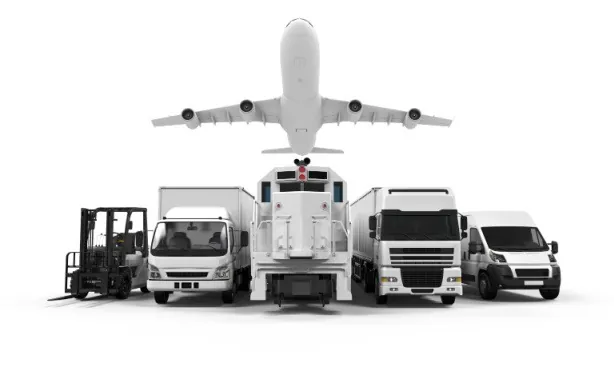
Interstate Truckers
Interstate truckers partner with FreightCenter to fill their trucks to capacity before transporting freight shipments by truck.
What Are Interstate Truckers?
Interstate truckers are truck drivers who haul interstate freight across multiple state lines or country borders. An interstate trucker must pass through one or more state lines to qualify, even if a driver only passes through a state briefly. U.S. drivers who pass through Mexico and Canada are also considered interstate truckers.
Long haul drivers are considered interstate, as they travel long distances to transport freight. They usually cross many states to reach their destination. However, short-haul (also known as regional) drivers can also qualify if their operating region includes another state.
Learn more about interstate truckers and how FreightCenter works with them below.
Thousands of businesses trust FreightCenter to move their freight faster, smarter, and cheaper! From unbeatable rates to top-notch service, our customers are raving about their shipping success.
See why they keep coming back!
Award-Winning Service, Trusted by Shippers Everywhere!
- 2021, 2017 & 2016 Food Logistics’ Top Green Providers
- 2021 & 2018 Supply & Demand Chain Executives’ Pros to Know: Matthew Brosious
- 2020 & 2019 Top Food Logistics’ 3PL & Cold Storage Provider Award
- 2020 & 2019 Business Observer’s Top 500 Companies on the Gulf Coast
- 2020 & 2017 SmartWay® Transport Partner
- 2020 & 2017 Food Logistics’ Champions: Rock Stars of the Supply Chain
- 2020 Best of Palm Harbor Awards for Local Businesses
- 2017 Green Supply Chain Award from Supply & Demand Chain Executive
- 2017 Tampa Bay Business Journal Heroes at Work
- 2016, 2015, & 2012 Food Logistics Top 100 Software and Technology Providers
- 2013 Tampa Bay Business 100 by Tampa Bay Business Journal
- 2013 Top 100 Great Supply Chain Partners by SupplyChainBrain
- 2012 TIA Samaritan Award Honorable Mention
- 2012, 2011 & 2010 TBBJ Fast 50 Recipient
- 2013, 2011, & 2010 Diversity Business Top Businesses

Why Choose FreightCenter for Freight Shipping?
Expertise in Freight Shipping: With over 25 years in the logistics industry, FreightCenter is dedicated to guiding you through the entire logistics process, from beginning to end. Our goal is to make freight shipping easy to understand and book. Don’t waste time researching and receiving quotes from individual carriers- FreightCenter’s got your back!
Competitive Rates with Tailored Solutions: We prioritize high-quality customer service without breaking your wallet. We utilize our relationships with regional and national carriers to offer you competitive, affordable rates while providing personalized solutions to your needs. Need a liftgate? We got you! Want to expedite your order? Leave it to us! We’re ready to provide tailored solutions that don’t compromise your freight shipment.
Personalized Customer Support: FreightCenter is committed to satisfying our customers. Our friendly customer support team is here to help you every step of the way, from initial inquiries to post-shipment concerns. We handle all aspects of logistics, including tracking, paperwork, and communication with carriers, so you can focus on your business while we manage your shipment. Choose us for our reliable service and affordable quotes!

Interstate Trucking Duties and Rules
Interstate truckers have many of the same duties as other truck drivers. This includes:
- Operate heavy vehicles for extended periods
- Follow traffic laws of each state they travel
- Maintain vehicle and perform maintenance if necessary
- Inspect cargo before, during, and after travel
- Understand emergency procedures in the event of natural disasters, cargo theft, accidents, or other emergencies
- Be prepared for customs clearance if travelling in-and-out of the country
Interstate truckers must also log their Hours of Service (HOS). This is required by the Federal Motor Carrier Safety Administration (FMCSA), which dictates how much time a driver should be operating a vehicle. Some of these regulations include:
- Drivers have a 14-hour driving window, followed by 10 hours of rest or other job-related work that doesn’t involve driving.
- During the 14-hour window, drivers can only drive for 11 total hours.
- Drivers must take a 30-minute break after driving for 8 consecutive hours.
- Drivers cannot drive after 60-70 hours on duty for 7-8 days straight. Drivers must take 34 or more hours off duty before starting a new 7-8 day work period.
Interstate drivers do a lot of driving, which means they must have exceptional driving skills. To get all the skills they need to begin driving across states, they must obtain a commercial driver’s license (CDL) through a government-approved driver training program. A driver must be 21 years old to apply.

Interstate vs Intrastate Truckers
If interstate truckers are drivers who pass through multiple states, what about drivers who stick to just one state? Those drivers are called intrastate truckers. They are limited to driving just around one state, even if that state is more extensive (like Texas or California). These drivers are usually short-haul drivers who don’t cross state lines or local drivers who work for local communities, such as garbage truck drivers, mail carriers, or in-store drivers.
Interstate and intrastate drivers have a few similarities between them:
- They both can operate regular semi-trucks for their jobs
- They must follow traffic laws
- They must maintain their vehicles
- They must obtain a CDL to become commercial drivers.
However, there are many differences between interstate and intrastate drivers, including vehicle types, the type of licensing they need, and what rules they need to follow.
Vehicles
In addition to regular semi trucks, interstate drivers can operate specialized vehicles for heavy haul shipping, such as flatbeds, RGNs, reefers, and dry vans. Intrastate drivers can also use semi trucks, but they usually operate specialized vehicles for shorter distances, such as box trucks, garbage trucks, and parcel vans.
Licenses
Both kinds of drivers need to get a CDL to operate a commercial vehicle. However, the requirements differ depending on how much driving they’ll be doing and if a driver is crossing state lines. Interstate drivers must be 21 to cross state lines and complete an approved driver training program. Intrastate drivers must be 18 years old but don’t have to complete a training program to start driving.
Regulations
Interstate drivers must comply with FMCSA rules, including logging their HOS, taking mandatory breaks, and going off-duty after 14 hours of driving. Intrastate drivers do not have to follow FMCSA regulations but must follow state regulations, which differ depending on the state. Both also have different insurance requirements; for example, intrastate trucking insurance rules are less rigid than interstate trucking insurance, which means less coverage for accidents.
To create value for our customers by delivering customized shipping solutions that meet their unique needs and to fulfill shipping demands from simple to complex with expertise, guidance and ingenuity.
Trust the experts at FreightCenter to give you the best prices and the most comprehensive options for all your LTL freight shipping needs.
We deliver optimized solutions for full or partial truckloads and competitive dry van, flatbed, and refrigerated freight pricing. We can cover your full truckload shipping needs.
Nationwide Expedited Trucking services move your freight securely and rapidly. Your freight requires fast delivery; our freight shipping experts can get your shipment fast, whether in one large box or a full truckload.
The most reliable Specialized Freight Services rates from all the top carriers are just a few steps away. From white glove service to international shipping, we've got you covered.

Frequently Asked Questions about Interstate Drivers

Q. What is interstate trucking?
Interstate trucking is a type of truck driving that crosses multiple state lines to deliver freight to long-distance locations. This also includes drivers who cross country borders regularly. Long-haul drivers are an example of interstate truckers, though short-haul drivers qualify if their region crosses state lines.
Q. How is the difference between interstate and intrastate trucking?
Intrastate trucking is a type of trucking where the driver can only deliver freight within their home state. While interstate and intrastate drivers can drive similar vehicles and perform similar duties, they differ in whether they can cross states, as well as what vehicles they may operate, licensing requirements, and regulations they must follow.
Q. Why do interstate drivers need to log their hours of service?
Interstate truckers that travel long distances (like long haul) must record the number of hours they drove and when they took time off. This is to satisfy the FMCSA’s regulations regarding hours of service (HOS), which requires drivers to stop working after 14 total hours (11 hours of driving plus 3 hours of breaks/job-related work), and resume after 10 hours off-duty.
Q. How do you become an interstate trucker?
Prospective interstate drivers must be over 21 years old, the legal age at which one can operate a commercial vehicle across state lines (you must be 18 years old to operate a commercial vehicle in your home state). Drivers must also complete a mandatory driver training program and follow all federal regulations and traffic laws.
Three Advantages of Freight Shipping with FreightCenter

25+ Years of Service
We have over 25 years of experience, as evidenced by our large network of professional carriers. Our knowledgeable team of shipping experts is ready to help you optimize your shipping experience.

Customizable Shipping Options
Need a liftgate? No problem! Need to ship your products quickly? We got you covered! Our FreightCenter agents can offer tailored solutions for your specific shipping needs while offering affordable rates you can’t find anywhere else.

Friendly Customer Support
Our customer support team has the answers to many of your shipping questions and concerns. We’re here to help you through every step of the shipping process, from initial inquiries to post-shipment issues.


